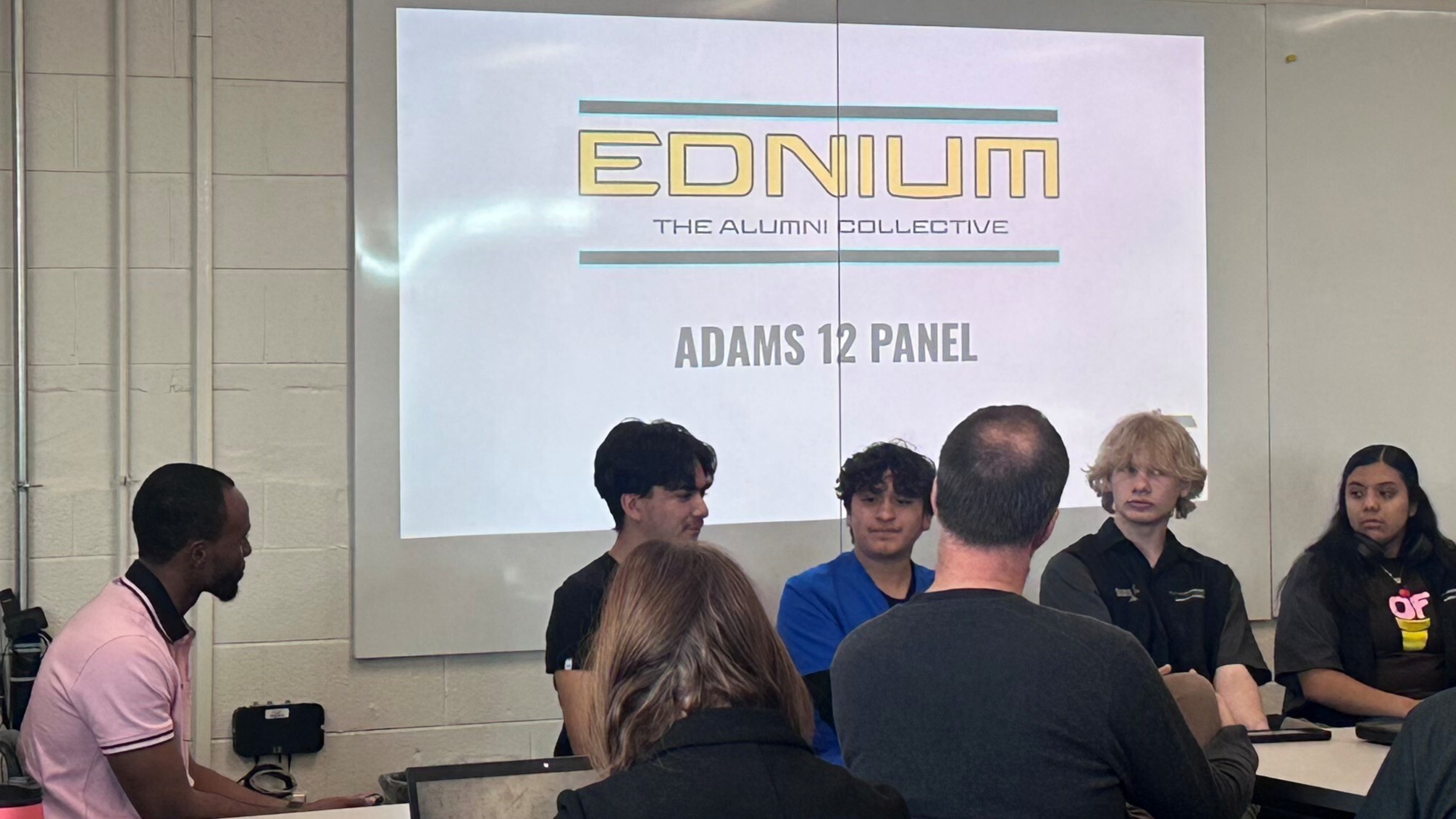“I'm in Provo, Utah, studying cell biology and physiology, and hoping to go pre-med at BYU while working as a CNA with the certification I got at CCIC. It’s incredible.”
That’s what real career-connected learning looks like in high school. That’s what we mean by Credential of Value.
Economic stability and access to ongoing wage growth are among the top issues facing young people, regardless of their path after high school. In Denver, where the cost of living keeps rising, students need more than a diploma. They need skills and credentials that give them options right now.
At Ednium, we’re working to ensure that students can pursue pathways that work for them, leading to real economic and personal value.
When we asked alumni what having a credential of value meant to them, they said:
- If I don’t go to college, I have the means to take care of my family.
- If I do attend college, it will improve my chances of finishing and affording my degree.
- When I graduate from college, I will have an additional set of skills that expand my employment options, allow me to be more entrepreneurial, and empower me to take greater risks.
A Credential of Value is an industry credential awarded upon graduation, earned in high school through dual enrollment or career and technical education (CTE) classes. Its impact shows up immediately, not down the line.
In 2023, our Leadership Launchpad Cohort 4 identified that DPS students were graduating without the credentials or skills they needed to become self-sufficient in the city they grew up in. The consequences of not taking action were obvious and something we simply couldn't accept.
This sparked our work with Gary Community Ventures, where we identified five schools that were already giving students access to career credentials before graduation.
- Adams 12 Future Forward
- CEC Early College of Denver
- Cherry Creek Innovation Campus
- New Legacy Charter School
- Warren Tech
Their stories and insights became the foundation of our Credentials of Value work.
There are three common myths about credentials that our alumni and student partners helped dispel:
- Myth 1: Credentials are just for students who aren’t going to college.
Truth: 73% of alumni also pursued a post-secondary degree in addition to their credential earned in high school. It’s a launchpad, not a limitation.
- Myth 2: It’s either college or career.
Truth: Career-connected learning creates more opportunities, not fewer.
- Myth 3: CTE courses are not as rigorous as traditional academic courses.
Truth: Alumni report that their CTE courses were more rigorous than their academic courses, and they found that critical thinking was the most important skill developed during those courses.
At CEC Early College of Denver and schools like it, students are learning in real-world contexts. They’re gaining confidence, industry exposure, and guidance from instructors who go the extra mile to help them succeed. As one alum put it:
“Through that program, I was able to land two technical internships in the field that I am currently studying. Honestly, it’s probably one of the biggest reasons why I’m at the college I’m at.”
Career navigation, early industry experience, and deep relationships with instructors help students see themselves in the future they want. In fact, 74% of alumni stated that their CTE program allowed them to find their passion, leading to a meaningful career path.
Credentials of Value deliver a real return on investment. They’re measurable, sustainable, and most importantly, they support long-term economic mobility. That’s why this fall, we’re releasing a full report with insights, best practices, and recommendations for scaling this work across Colorado.
Credentials of Value is one part of a broader ecosystem of supports. This is just one piece of Ednium’s bigger push for career-connected learning, alongside efforts with the Emily Griffith Foundation and post-secondary and workforce readiness.
One alum’s story highlights why this work matters:
“This course taught me my love for nursing. I was able to get a position at a hospital straight out of high school because of the certifications I have. It was able to push me and give me a jump start on my career. I wouldn't change it for anything.”
This work anchors our policy priorities and our vision for the future. It reflects our core belief in meeting the community’s needs and allows us to shift systems and widen access to benefit all alumni, current, and future.
And we invite partners–alumni, students, educators, funders, policymakers, and industry leaders–to help us turn momentum into action.
Let’s make sure every student in Colorado graduates with a diploma, but also with real options, real skills, and the confidence to thrive in the city they call home.
-1.png?width=180&height=55&name=Ednium%20Email%20(2)-1.png)
